How Hitler took Czechoslovakia
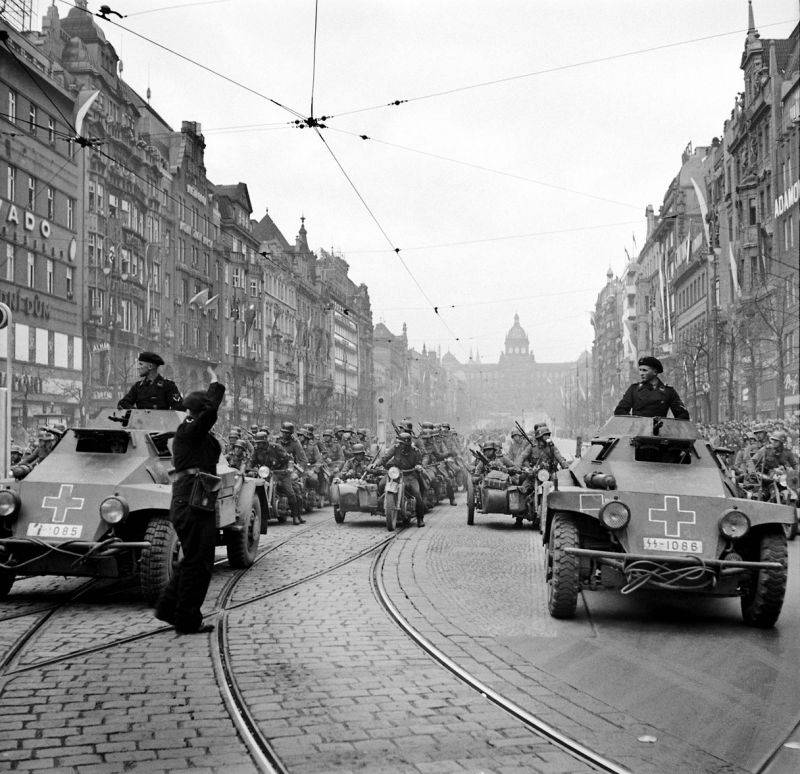
Preparing Munich
The Anglo-French "peacekeepers" were afraid that Hitler would start a war against Czechoslovakia, which could lead to undesirable military and political consequences. The plan to "appease" the Reich will collapse. Therefore, the British insisted that everything be decided by "peaceful evolution".
Britain sent Lord Runciman to Prague in the summer of 1938 as an "independent intermediary". In fact, he fully supported the aggressive policy of Berlin. The United States, although not so openly, but supported the policy of "appeasement" of Germany.
Thus, the American ambassador to Germany, Wilson, arrived in Prague in early August 1938 and, like Runciman, demanded that the Czechoslovak government make concessions to the Sudeten Germans (How Western Powers Helped Hitler End Czechoslovakia).
Meanwhile, the German command was preparing for the Czechoslovak operation. Hitler hoped that England and France would surrender Czechoslovakia to him.
On the western border (the Siegfried Line), new fortifications were defiantly built, showing that the French could not help the Czechs. The Fuhrer in September 1938 announced that about 450 thousand people were building the line. At the same time, the Nazis tirelessly insisted that the strengthening of the defense and the army was connected with the “Soviet threat”, which was positively received in London and Paris.
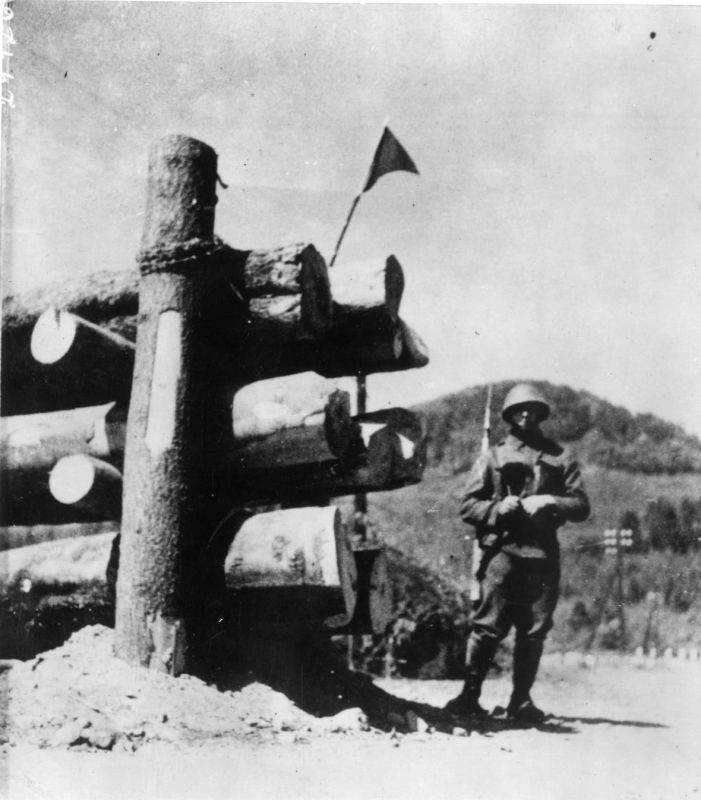
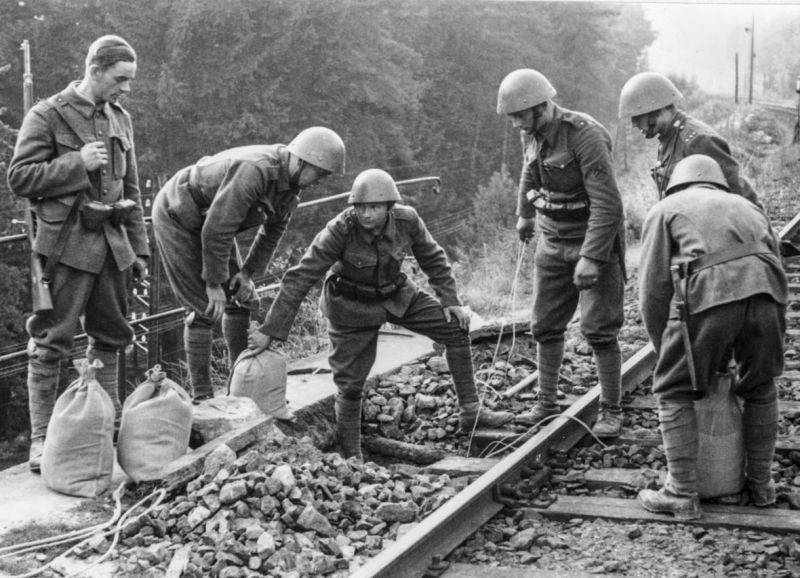
Second Sudeten Crisis
The crisis in Czechoslovakia deepened.
The German party of Henlein became more and more impudent. The Henleinites rejected all the proposals of the Czech authorities and put forward new demands. In early September, Prague capitulated to the Sudeten separatists.
But this was not enough for the Nazis.
On September 7, clashes with the police were provoked.
Active anti-Czech propaganda began again in Germany. On September 12, Hitler demanded that Prague give the Sudeten Germans the right to decide their own fate.
Italy supported its ally.
The Henleinites organized numerous performances in the Sudetenland. The Czech authorities have introduced martial law in the region. Henlein, fearing arrest, flees to Germany. When the Czech authorities propose to resume negotiations, Henlein issues an ultimatum: the lifting of martial law in the Sudetenland, the withdrawal of Czech troops and the transfer of law enforcement to local authorities.
The British ambassador in Berlin warns of the possibility of war. The head of the British government, Chamberlain, arrives in Germany on September 15 to "save the world".
The Fuhrer said that he wanted peace, but he was also ready for war. War can be avoided if the Sudetenland is handed over to Germany.
Chamberlain agreed to this.
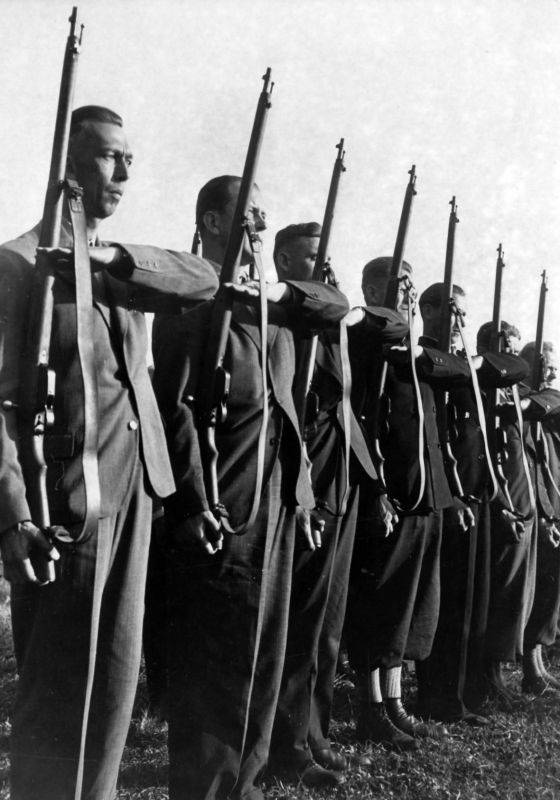
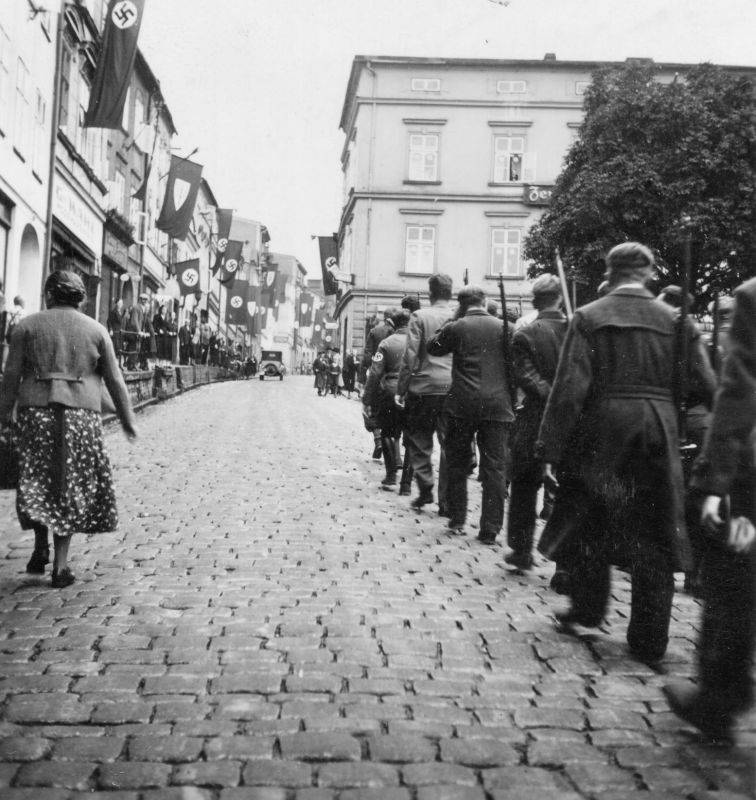
On September 18, at the invitation of the British, Daladier and Bonnet arrived in London.
Chamberlain briefed the French ministers on the results of his visit to Germany, and both sides made a decision in principle on the Czechoslovak question.
On September 19, London and Paris demanded that Prague hand over to Germany border areas with a predominantly German population. France and England promised to act as guarantors of the new borders of Czechoslovakia, but Prague had to cancel the mutual assistance treaties with the USSR and France.
Subsequent events showed that the "guarantees" of the British and French were worthless. It was a deception to persuade the Czechs to the first serious concessions.
At the same time, it was obvious that in this case, Czechoslovakia would lose the most important industrial region and lose its border defensive lines, remaining defenseless against further German aggression.
The only great power that expressed support for Czechoslovakia was the Soviet Union. Moscow invited England and France to act as a common front in defense of Czechoslovakia, but the Westerners reacted coolly to this.
Moscow was ready to fulfill its obligations to Prague even without the support of France, if the Czechs asked for help and fought themselves. Moscow began the formation and deployment of army groups on the western border. In the event of aggression, she suggested that the Czechs send 700 fighters to help and supply aircraft on preferential terms.
Moscow warned Warsaw, which was preparing to divide Czechoslovakia together with Germany, that in this case Poland would be considered an aggressor, and the non-aggression pact would be denounced.
The Soviet government proposed joint measures to contain the Reich and France.
Thus, Prague, relying on the support of the people, the army, the help of the USSR, could reject the demand for surrender. Czechoslovakia, having powerful border lines, could even repel the blow of the enemy itself. She had 45 divisions.
In total, the armed forces had about 2 million people, over 1 aircraft, 500 tanks, 5 guns.
And the Germans allocated 39 divisions for the Green Operation. The Nazis later marveled at the strength of the Czech fortifications.
Hitler personally went to the former border to get an impression of these fortifications, and returned shocked. The bunkers were amazingly powerful, exceptionally skillfully placed, deeply echeloned with excellent use of the nature of the terrain. Their capture, with a decisive defense, would cost us a lot of blood.
One of the leaders of the German army - Field Marshal Keitel at the Nuremberg trials said:
The threat from Poland and Hungary could be countered by a Russian military demonstration.
However, the Czech elite, which occupied pro-Western positions, had already given up. Therefore, Moscow's attempts to help Prague were generally ignored.
Thousands of rallies were held in Czechoslovakia in defense of the country, the people were ready to fight for their homeland with weapons in their hands. The Czechoslovak elite, frightened by social unrest, chose to capitulate.
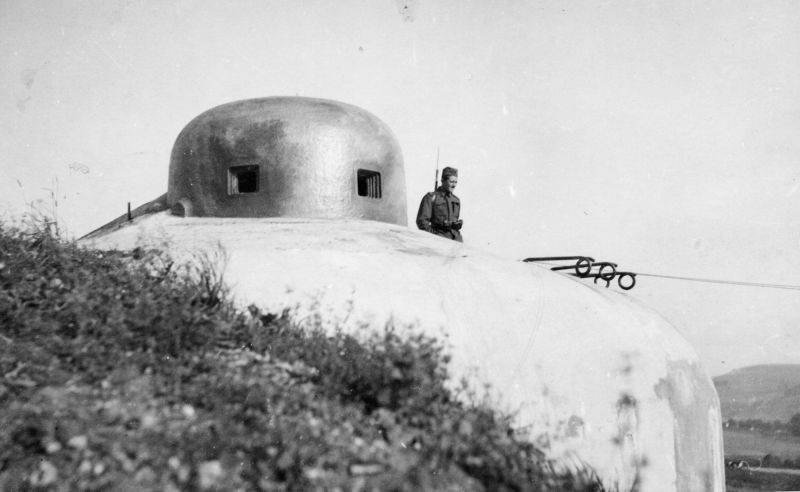
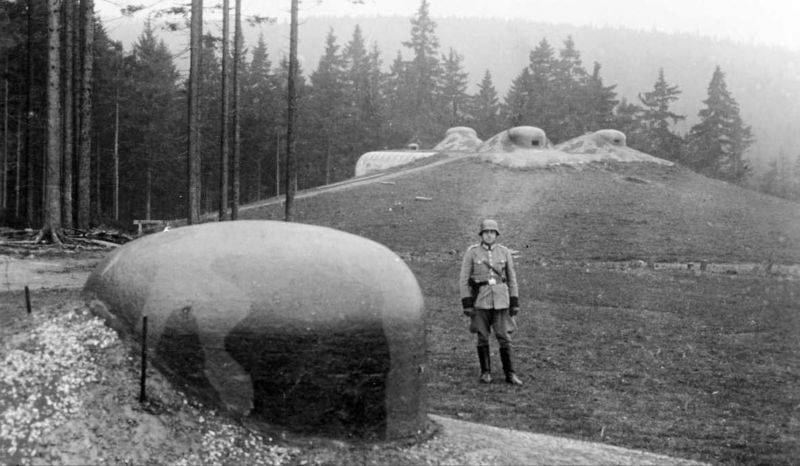
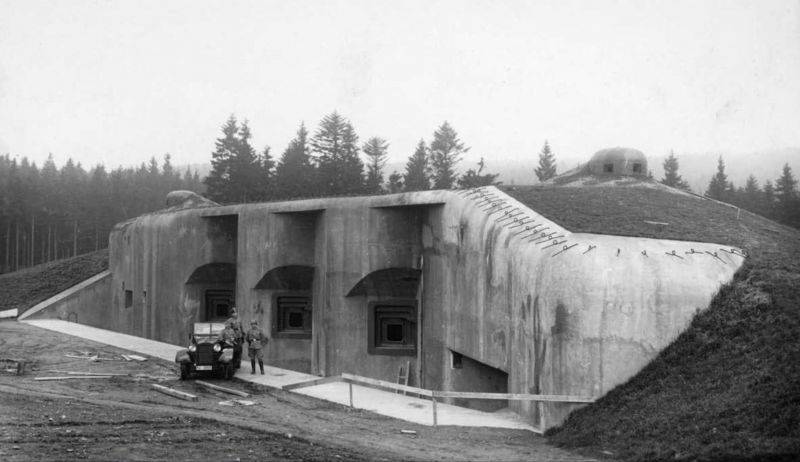
The Munich Agreement
On September 20-21, 1938, England and France again put pressure on Prague.
Beneš was informed that if war broke out, France would not take part in it. England also disclaimed responsibility for the actions of Berlin and Prague.
The Czechoslovak government surrendered.
On September 22–23, Chamberlain again visited Hitler and expressed his readiness to hand over the Sudetenland to Germany.
The Fuhrer presented new demands: the right to secession for Hungarians and Poles. New borders to be determined immediately, without delay and without any commissions and committees. Resolve the issue by October 1st.
Czechoslovakia met the new demands of the "world community" with mass protest. The names of Goji, Benes, Hitler and Chamberlain were met with abuse.
Goji's government fell.
The former commander of the Czechoslovak Corps in Russia during the Civil War, Yan Syrovy, was appointed the new prime minister and minister of national defense (he was marked by the surrender of Admiral Kolchak). The people hoped that Syrovy would lead the resistance. However, the new head of government turned out to be the same capitulator.
The initiated mobilization (carried out on September 23-29) turned out to be a demonstration. After Benes accepted the terms of the Munich Agreement, Syrovy gave the order not to defend against the advancing Wehrmacht.
On September 29, 1938, a four-power conference was convened in Munich - Britain, France, Germany and Italy. The delegation of Czechoslovakia was not even allowed to the talks.
Hitler opened the conference, he demanded "in the interests of the European world" the immediate transfer of the Sudetenland.
Mussolini proposed a project, which was handed over to him from Berlin. Chamberlain and Daladier accepted this plan. On the night of September 30, the Czechoslovaks were simply introduced: they arrived ready to surrender.
The Sudetenland was given to Germany, and territorial claims from Poland and Hungary were also satisfied.
The Munich agreement became the peak of the provocative policy of England, France and the United States, which "appeased" Hitler at the expense of other countries and tried to direct his aggression to the East.
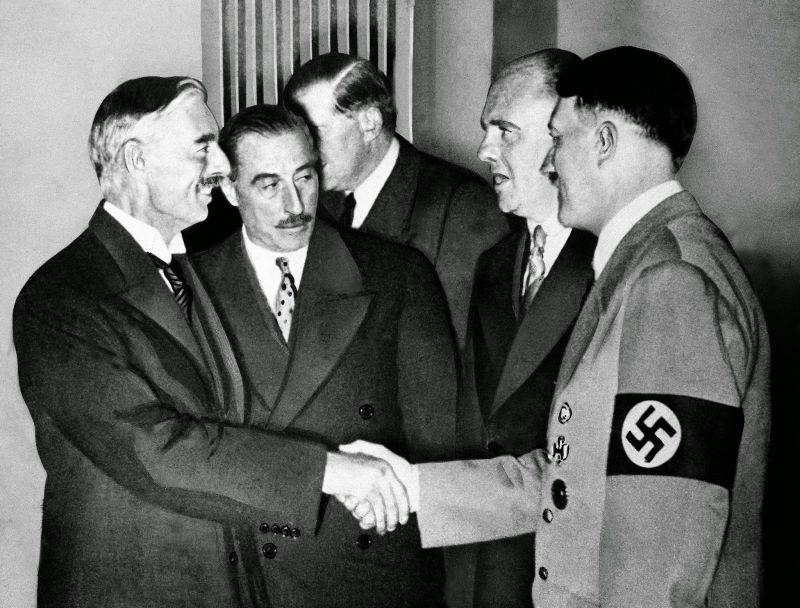
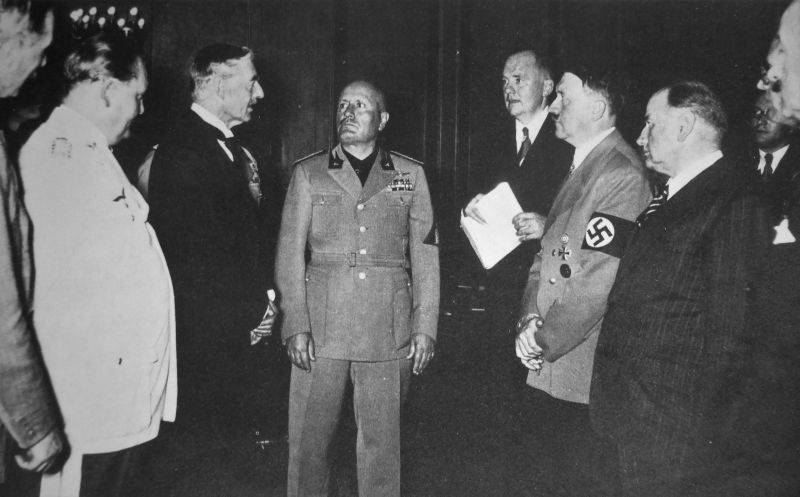
Partition and liquidation of Czechoslovakia
On October 1, 1938, the Wehrmacht occupied the Sudetenland, occupying not only areas dominated by the Germans, but also other areas with a mixed population (a plebiscite was supposed to be held there).
At the same time, Poland demanded the transfer of the Teszyn region. The Germans supported this demand.
Under pressure from Berlin, Prague recognized the autonomy of Slovakia on October 7, and the autonomy of Transcarpathian Ukraine on October 8.
On November 2, the Vienna Arbitration took place, according to which Hungary received the southern regions of Slovakia and Transcarpathian Ukraine with a population of more than 1 million people.
All this happened with the tacit consent of England and France.
As a result, Czechoslovakia lost about half of its production capacity, 80% of energy. The new borders destroyed the country's defense capability and disrupted its transport communications.
On October 11, 1938, Hitler instructed Ribbentrop to work out a plan for the further solution of the Czech problem.
Prague was given to understand that it was in the sphere of Germany's vital interests, no more alliances with France and Russia. The Czechoslovak economy is included in the economy of the Reich.
A protocol was signed on the construction of the Danube-Oder Canal, an agreement on the construction of the Breslau-Brno-Vienna highway. German enterprises are actively absorbing Czech ones, trade is made dependent on Germany.
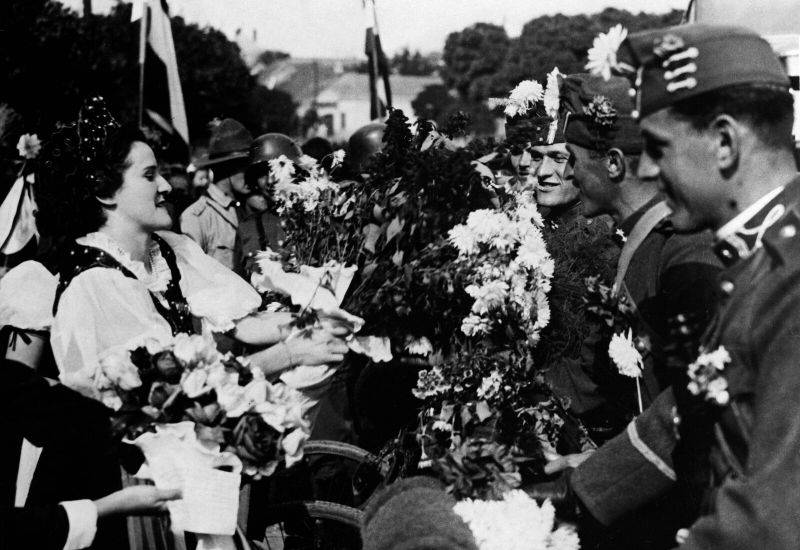
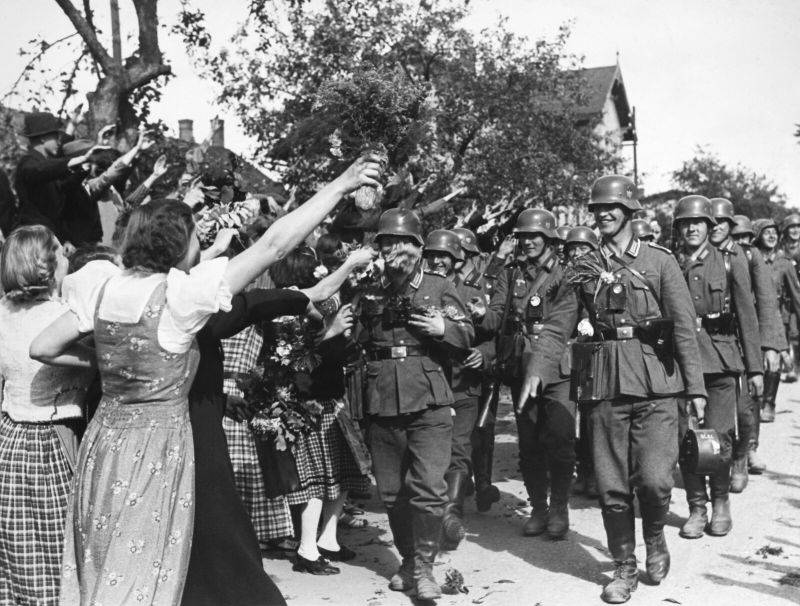
In October - December 1938, military preparations were underway for the complete absorption of the Czech Republic.
German intelligence threw Henlein's "free corps" fighters, reconnaissance and sabotage groups into Bohemia and Moravia, and a wide intelligence network was created.
Since the problem of the German community was solved, Hitler found a new reason to interfere in the affairs of Czechoslovakia - the protection of the Slovaks from the dominance of the Czechs. The card of Slovak separatism was played. The Germans established contact with the Slovak separatists.
Slovak Prime Minister Tiso met with representatives of German intelligence and promised that he was ready to proclaim the sovereignty of Slovakia under the protection of the Reich.
On March 13, 1937, Tiso visited Berlin. On March 14, the Slovak Parliament announced the secession of Slovakia from Czechoslovakia and the formation of the Slovak Republic. The Slovaks called on German troops to help. In the Czech Republic and Moravia, the Germans organized a series of provocations.
On the night of March 15, 1939, Hitler, having received the Czechoslovak President Gakha and Foreign Minister Khvalkovsky in the capital, declared the inadmissibility of resistance to the Wehrmacht.
Hacha pleaded for Czech sovereignty to be preserved. Goering and Ribbentrop processed it. They delivered an ultimatum: either capitulation or the German Air Force would destroy Prague within a few hours. Hundreds of planes are waiting for the order to bombard, which will begin at 6 o'clock in the morning.
It was a bluff, the Luftwaffe did not have such opportunities.
But Gakha broke down. The Czech elite accepted the ultimatum and signed an agreement to transfer the fate of the Czech people and country into the hands of the Fuhrer.
On March 15, German troops occupied the Czech Republic and Moravia without resistance and entered Prague.
Before that, saboteurs and agents from among the Sudeten Germans captured key facilities, points and police departments.
The Czechs did not resist.
The protectorate of Bohemia and Moravia was created. Slovakia gained independence, but under the protectorate of the Reich. Subcarpathian Rus (Ukraine) declared independence, but it was occupied by the Hungarians.
England and France reacted to this event with understanding and even relief. Like, this is “internal decay”.
Thus, Germany received a powerful military and economic potential of Czechoslovakia. The Germans began to dominate the Danube and gained a foothold for aggression in the Balkans.
The death of Czechoslovakia deprived France of a strong ally, approximately 35-40 well-armed divisions, respectively, the Germans were able to equip 40 of their divisions with Czech weapons.
For France, it was also a political catastrophe, which was not realized then. Paris betrayed its ally. The entire system of collective defense, created by the French earlier, collapsed.
In Warsaw, Bucharest, Belgrade they saw the price of an alliance with the French. There they fussed to negotiate with Berlin.
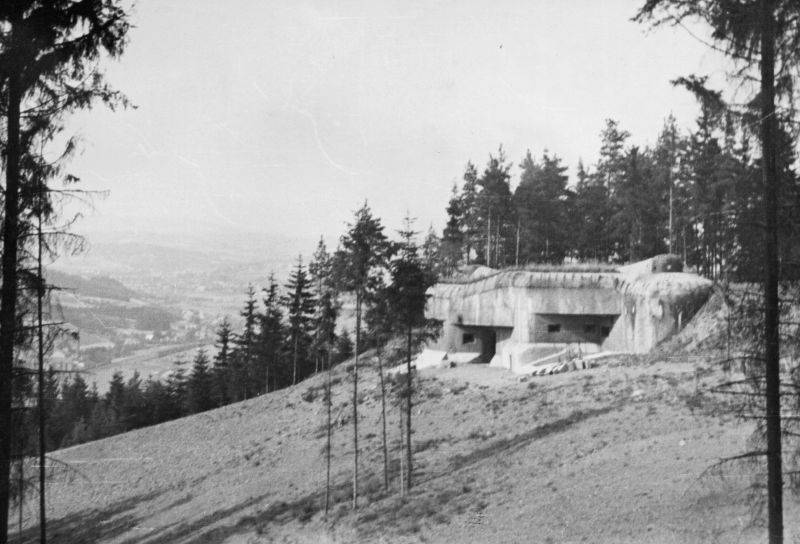
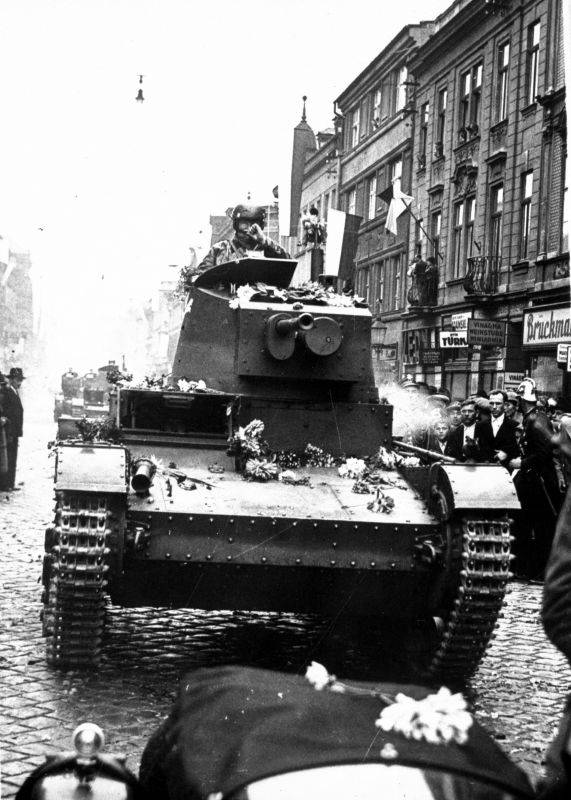
The success of the information war
Hitler achieved a brilliant success in this campaign, an almost bloodless victory over a strong opponent. The capture of its resources, material and industrial base, which did not suffer in any way, since there were no hostilities.
Formally, no war was declared; until the last moment, diplomatic relations between Prague and Berlin were maintained.
The Germans were able to organize in Czechoslovakia a powerful "fifth column" of the Sudeten Germans, with the involvement of Slovak, Hungarian and Polish nationalists, separatists. Intelligence was active, sowing fear and panic behind enemy lines.
The calculation worked on the weakness, worthlessness of the democratic-bourgeois government in Czechoslovakia. The Czech elite turned out to be rotten, it had all the opportunities and resources to repel German aggression, but got scared and capitulated. Since the main hope was that "the West will help us." As soon as England and France "leaked" Prague, the Czech elite threw out the white flag.
The Germans skillfully inflicted a series of psychic, informational attacks on England and France. They played on the fact that Western society after the First World War was terribly afraid of a big war.
The Nazis spread rumors that, in the event of the intervention of the French and British, their submarine fleet would strike at the main British trade routes in the Atlantic. That a surprise Luftwaffe attack on the British home fleet is possible.
This misinformation was launched by the chief of the Abwehr, Canaris. Although the Reich submarine forces were still in the initial stage of development, the Air Force was also weak and relatively small in number.
The press during the Sudeten Crisis immediately spread these rumors. The ghosts of non-existent submarines and the armada of the Luftwaffe shocked the inhabitants of England and France. In September 1938, war seemed imminent. Even the French generals believed that Paris would be destroyed. They mistakenly believed that their Air Force was worse and weaker than the German ones.
In France, the roads that led from Paris to the west were clogged with cars. Residents of large cities fled to the west of the country. Already during a real war, terrible traffic jams and panic will greatly undermine the combat capability of the French army.
Gas masks were handed out in London, shelters were being dug in parks, and children were being evacuated. Installed anti-aircraft batteries. Newspapers wrote that thousands of people would be killed during the raids in the very first days.
Similar rumors circulated in Prague. In particular, they expected a biological attack.
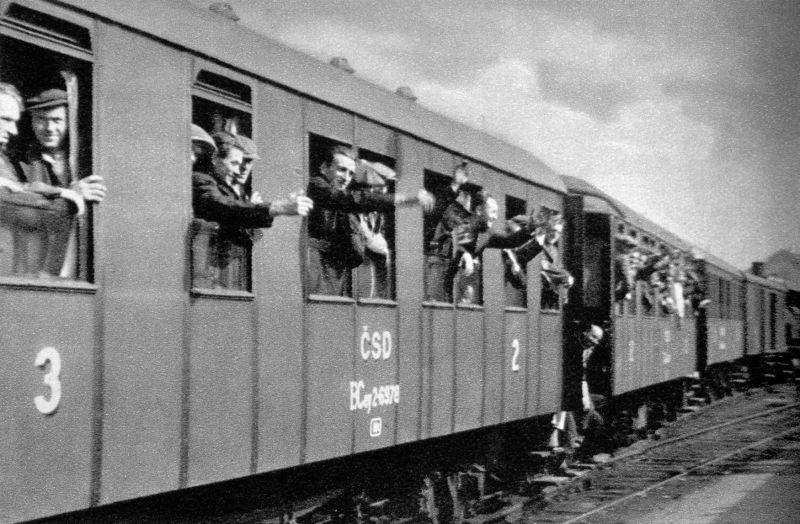
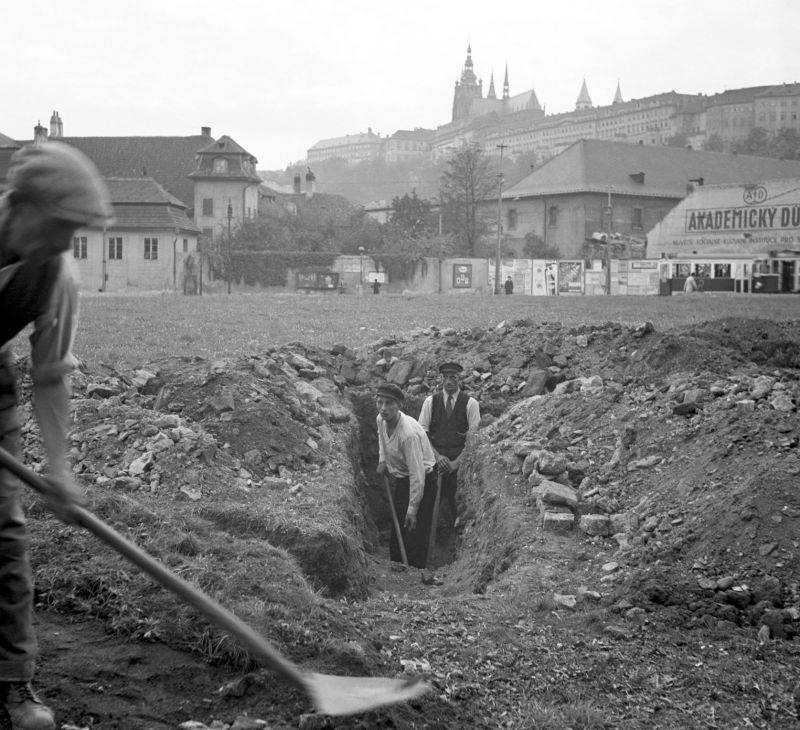
Fear and horror worked in the West!
Hitler was allowed to dismember Czechoslovakia, first tear off the industrial Sudetenland, and then occupy the Czech Republic itself.
Daladier and Chamberlain believed that they had saved their countries and the whole world from a terrible war, Paris and London from destruction by the deadly Luftwaffe.
Interestingly, the German generals themselves, the military leaders, on the contrary, were sure (knowing about the real state of the Wehrmacht) that the war against Czechoslovakia, which France, England and Russia would inevitably support, would be lost.
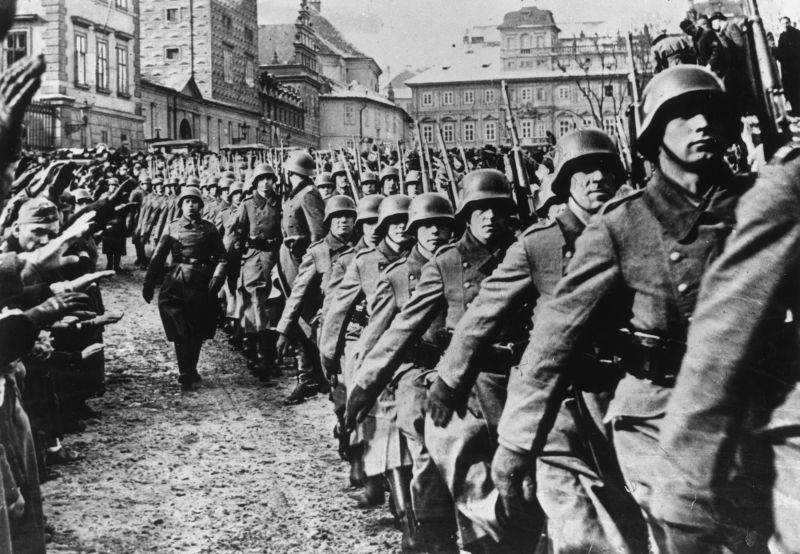
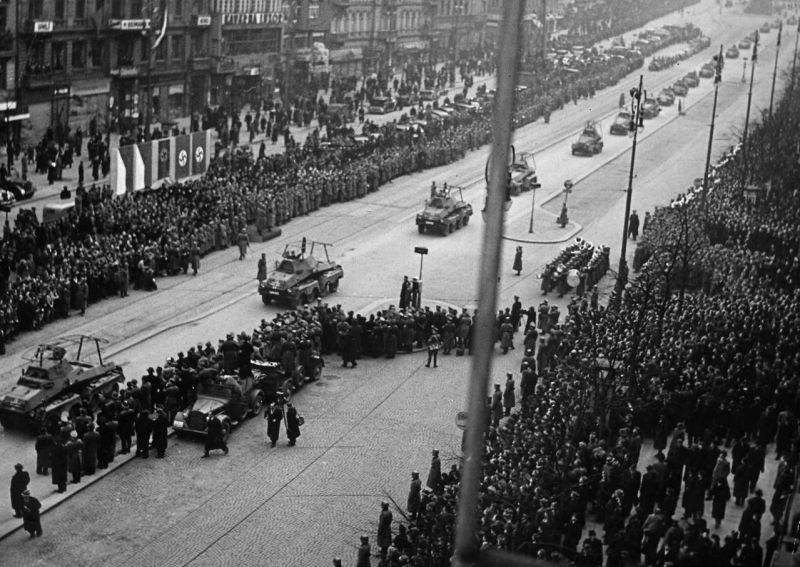
- Alexander Samsonov
- https://ru.wikipedia.org/, http://waralbum.ru/
Information